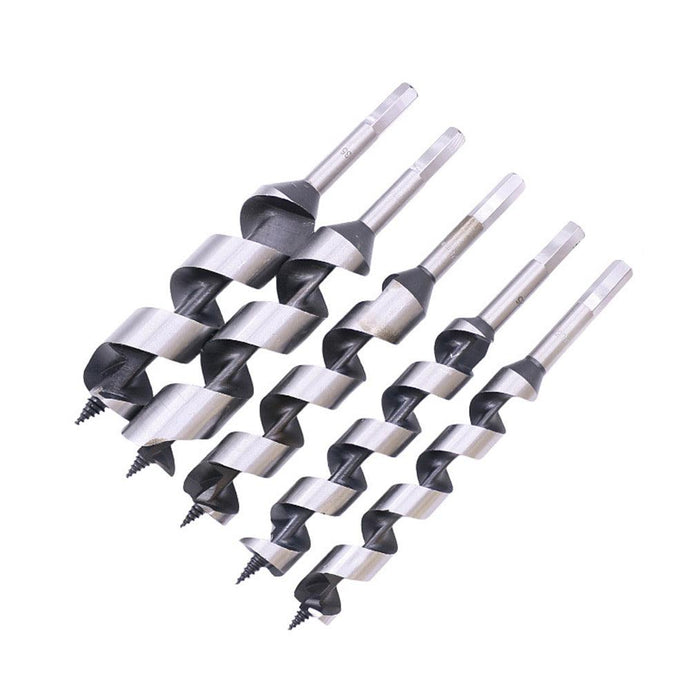The Essential Guide to Different Drill Bits for Every Job

Drilling is a fundamental task in a wide range of projects, from woodworking and metalworking to masonry and even delicate glasswork. The success of any drilling operation hinges on using the right drill bit for the job. Drill bits are not a one-size-fits-all solution; they come in various designs, each suited to specific materials and applications. Knowing which type of drill bit to use can save time, improve accuracy, and enhance the quality of your work.
Twist drill bits are the most common and widely recognized bits. These versatile tools are designed for general-purpose drilling in a range of materials, including wood, metal, and plastic. Made from high-speed steel (HSS), twist drill bits are available with various coatings, such as titanium or black oxide, which improve durability and reduce friction. Their spiral flutes help to remove debris from the hole while drilling, making them ideal for everyday tasks. Whether you're installing shelving or building furniture, twist drill bits are a reliable choice for many basic drilling needs.
Step drill bits are perfect for drilling holes in thin materials like sheet metal. These bits feature a conical design with multiple cutting diameters, allowing them to drill a range of hole sizes without needing to change bits. The step design also helps reduce the likelihood of tearing or deforming the material, which is a common issue when working with metal sheeting. Step drill bits are often used in automotive, electrical, and HVAC applications, where drilling into metal is a frequent requirement.
Spade bits, also known as paddle bits, are designed for quickly drilling large holes in wood. They feature a wide, flat cutting surface and a sharp point at the center to help guide the bit into the material. Spade bits are commonly used in construction and carpentry when you need to create rough, large-diameter holes for things like pipes, wires, or bolts. While they drill fast, they tend to leave rough edges, so they are best used for jobs where precision is less critical, such as framing or other structural work.
For precision woodworking, brad point drill bits offer superior accuracy and cleaner results. These bits feature a sharp center point that allows for exact positioning, as well as cutting spurs on the outside edges that produce clean, tear-free holes. Brad point bits are particularly useful when working with delicate or softwoods, as they reduce splintering and ensure a smooth finish. They are a go-to choice for fine woodworking projects like cabinetmaking or furniture building, where neatness and precision are essential.
Hole saws are another type of specialized drill bit, designed to cut large-diameter holes in wood, metal, and even plastic. Unlike standard bits that remove material from the center, hole saws cut around the perimeter, leaving a circular plug in the middle. This makes them ideal for tasks like installing door hardware, fitting plumbing pipes, or adding ventilation. Hole saws come in different materials and sizes, with some specifically designed for wood, others for metal, and some that are multipurpose.
Masonry drill bits are designed specifically for drilling into tough, abrasive materials like brick, concrete, and stone. These bits are equipped with carbide tips that can withstand the intense friction and heat generated by drilling into such hard surfaces. Often used in conjunction with hammer drills, masonry bits are essential for tasks like anchoring bolts or installing heavy-duty fixtures in concrete walls. Their durability makes them indispensable for construction projects that involve drilling into hard materials.
Cobalt drill bits are a step up from standard HSS bits when it comes to drilling into tougher metals. Cobalt bits are made from a steel alloy that includes cobalt, giving them excellent heat resistance and the ability to retain their cutting edge for longer periods. These bits are specifically designed for high-performance drilling in hard metals like stainless steel, cast iron, and titanium. Cobalt bits are essential in industrial and heavy-duty applications where other bits would quickly wear out.
For delicate materials like glass, tile, and ceramics, glass and tile drill bits are the best choice. These bits feature a spear-shaped tip that provides greater control and reduces the risk of cracking or shattering fragile materials. They work by gently grinding through the surface rather than cutting, ensuring a cleaner hole without damaging the surrounding area. These bits are often used for home improvement tasks like installing bathroom fixtures or drilling into ceramic tiles for kitchen backsplashes.
Choosing the right drill bit for your project not only ensures better results but also extends the life of your tools and saves you time. Each drill bit is designed to handle a specific type of material, whether it's wood, metal, masonry, or delicate surfaces like glass and tile. By understanding the different types of drill bits and their applications, you can approach any drilling task with confidence and precision. Having a well-rounded set of drill bits in your toolbox means you're always prepared to tackle any job, no matter the material or the challenge.
